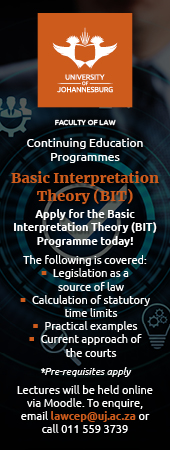Federalism is fundamentally African
Publish date: 22 April 2024
Issue Number: 1073
Diary: IBA Legalbrief Africa
Category: Governance
‘The charge that a federated state is somehow injurious to Africans is divorced from the history of African people having organised their states along federal lines, prior to contact with Europeans.’ So says the Free Market Foundation’s Zakhele Mthembu, adding federalism is as African as baobab trees and the Big Five. ‘Self-determination is inherent in the system of governance found in SA currently, as premised on the SA Constitution of 1996. Yet, this self-determination is seen in the various systems of governance that were found in Africa as a whole, or in Southern Africa specifically.’ In his Thought Leader column in the Mail Guardian, Mthembu says Africa in the modern day is actually a result of the forced centralisation of states or federations that were autonomous or semi-autonomous in their own right. The civil wars which are along ethnic or linguistic lines in Africa stem from a history of states that were or federations that were autonomous and different but were combined during conquest. This culture of decentralised power, he adds, is seen in the consensus-based decision-making model in localities governed by chiefs even in modern-day SA, as evidenced in cases such as Baleni & Others v Minister of Mineral Resources & Others. The case highlights how – according to the customs of the people of Xolobeni – a chief cannot unilaterally decide on what ought to happen to public land without consulting and getting consent from the various homesteads in the village/locality. ‘This shows the logic of accountability inherent in the African customary form of governance, inherent to federalism in principle, which sees power devolve to the local chief/executive and then from there, further being restricted by the consent of the various homesteads of the locality/village in major decisions like selling off public land.'
Mthembu argues SA is already a federal state, thanks to the Constitution – which gives the provinces exclusive power over abattoirs, liquor licences and ambulance services. Provincial infrastructure like roads are among the shared competencies with the national government. 'This federal reality of our Constitution was tested with the release of the Western Cape Provincial Powers Bill. ‘The Bill is an attempt to make reality and further the federal impulses and outright provisions in the SA Constitution. Although it has been criticised by some, for those who love the prospect of individuals self-determining it is a step in the right direction.’ Mthembu adds the people of the Western Cape, Gauteng, KZN, North West and Limpopo have a natural right to chart their own destiny; ‘they have the natural and constitutional right to self-determination’. Mthembu concludes: Federalism is as African as anything African people choose to do. The historical argument for it is merely extra evidence to support the primary point that everyone has the right to govern themselves firstly, and to be governed by people they choose in a manner they choose. Federalism seeks to make reality this fundamental principle of human existence. Opposing it is opposing the natural rights of self-determination which bring it about.’



